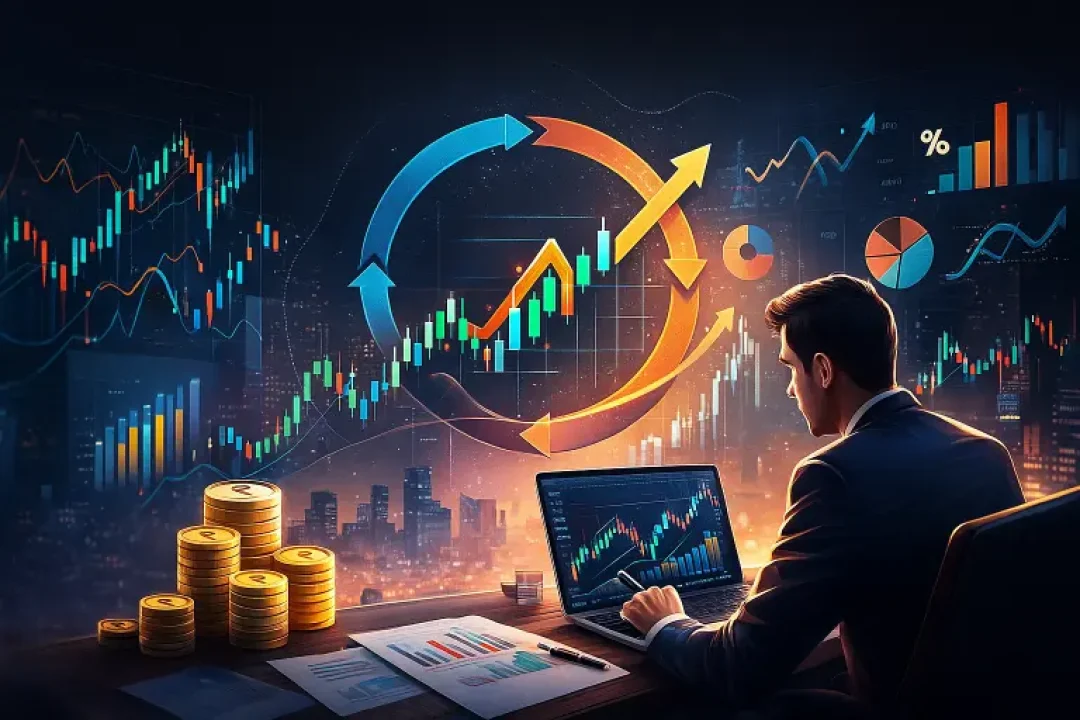Introduction
“Will tariffs cause inflation in the US?” is a question many people—kids, teens, and adults—are asking right now, especially as big news stories talk about price changes, jobs, and the stock market hitting new highs. Inflation means prices going up for the things people buy, like clothes, toys, phones, and food. Tariffs are extra taxes the government places on goods coming from other countries, and they can make imported items cost more. When prices rise, families may worry about spending, and businesses may rethink how they make and sell products. This blog explains, in simple and friendly language, what tariffs are, how they can affect prices, jobs, the stock market, and even countries like India. It also answers the core question: “Will tariffs cause inflation in the US?” using what recent research and market reports show so far.
What are tariffs and why do they matter?
Tariffs are fees charged on goods entering a country from abroad, and they can raise the cost of imported products for stores and shoppers. When tariffs go up a lot, the average tariff rate rises, and that can ripple through prices, supply chains, and businesses’ decisions about where to make things. In 2025, the average effective US tariff rate has moved sharply higher compared with late 2024, which is one reason many people wonder if we’ll feel it at the cash register. Economists look carefully at how much of the tariff cost gets passed along to consumers versus how much companies absorb by accepting lower profit margins, and the answer can change over time. This pass-through is important because it helps determine whether “Will tariffs cause inflation in the US?” in a big way or only a small way.
How do tariffs push prices higher?
Tariffs can raise the price of goods in a few steps: importers pay the tariff, companies decide whether to raise selling prices, and consumers may face higher tags in stores. Recent research by the Federal Reserve finds that the 2025 tariffs have already nudged up core goods prices, adding a measurable, though modest, bump to overall inflation. Specifically, the tariffs so far have contributed about 0.3% to core goods prices and roughly 0.1% to core PCE inflation, which is a common measure used by the Fed. That means “Will tariffs cause inflation in the US?” has a factual, early answer: tariffs have contributed to higher prices, but the total effect seen to date is still limited in size. Analysts tracking monthly consumer price data also note that tariff-sensitive categories like appliances, furnishings, apparel, and some groceries began to reflect more noticeable increases in mid-2025, and they expect more pass-through as older inventories run out. So “Will tariffs cause inflation in the US?” Yes—so far modestly—with the potential to grow as businesses cycle through pre-tariff stock and adjust pricing.
Why aren’t prices exploding if tariffs are rising?
Even when tariffs go up quickly, overall inflation may not surge right away because companies sometimes temporarily absorb the extra costs to protect sales. Research notes that firms, especially those with healthy profit margins, can hold down prices for a while, then gradually adjust as conditions change. Some studies say consumers might pay a growing share of tariff costs over time, especially as companies exhaust older, cheaper inventory and reprice goods. That’s why “Will tariffs cause inflation in the US?” can be true without instantly causing very high inflation readings: the timing and size depend on how quickly costs pass through to final prices and how businesses respond. Forecasts also consider the average effective tariff rate, which influences how broadly tariffs impact price tags across the economy. Deloitte’s baseline view in mid-2025 assumed a meaningful rise in the effective tariff rate, making consumer headwinds more likely as the year progresses. In short, “Will tariffs cause inflation in the US?” tends to be a yes—especially as pass-through builds—but the path can be gradual and uneven across product categories.
What else is happening in the US economy?
While tariffs are one piece of the puzzle, other parts of the economy matter too: jobs, company earnings, interest rates, and investor expectations. The US unemployment rate recently ticked up to 4.2%, with job creation slowing and prior months revised down, suggesting softer labor conditions. That can make families and businesses more cautious, because slower hiring often means more careful spending and budgeting. At the same time, US companies have posted strong Q2 earnings, with roughly 82–84% beating expectations, led by big technology and communications companies, which helps explain why stocks have hit highs despite uncertainty. This mix—firm earnings, higher tariffs, and a softer job market—creates a tricky backdrop for the Federal Reserve as it weighs inflation versus employment when deciding about interest rates. When people ask, “Will tariffs cause inflation in the US?” the broader context shows that tariffs are one contributor, but not the only factor influencing prices and policy.
Why are stock markets strong if people worry about prices?
Stock markets look forward, and investors often focus on company profits, new technologies like artificial intelligence, and expectations for interest rates. In Q2 2025, a very large share of S&P 500 companies beat earnings estimates, helped by strong sectors and resilient margins, and that supported higher stock prices even as some macro signals softened. Investors also track how companies manage costs—negotiating with suppliers, adjusting supply chains, or passing through prices—and many firms say they can protect profits, at least for now. This helps explain why stocks can climb while households still ask, “Will tariffs cause inflation in the US?” because equity markets weigh many forces beyond just prices, including earnings momentum and policy expectations.
How do tariffs affect families, in everyday words?
Think of tariffs like a new toll on a bridge that trucks must cross to bring goods into the country. If the toll rises, truckers and stores might raise prices to cover it, and shoppers might pay a little more for everyday items. Over time, if those tolls remain high, more companies might choose to build factories closer to home to avoid the toll altogether, but that change takes time and planning. As these changes unfold, families may notice some items—like appliances or clothing—getting pricier sooner, while other items change later as old stock sells through. That’s why the answer to “Will tariffs cause inflation in the US?” is that tariffs have already added a bit to prices, and more could show up gradually as businesses adjust.
How do tariffs affect jobs and confidence?
Jobs and confidence move together: when people feel secure in their jobs, they are more comfortable spending on big purchases. Recently, unemployment nudged up to 4.2% and monthly job gains slowed sharply, which can make households cautious about buying more expensive items. If tariffs raise costs for businesses, some firms may slow hiring or shift investment plans, especially in sectors directly exposed to imports. But the story is complicated: some US-based manufacturing can benefit if production reshoring gathers pace, supporting new jobs domestically over time. So while “Will tariffs cause inflation in the US?” concerns shoppers today, different industries may face different outcomes, with some seeing pressure and others finding new opportunities.
What are experts saying about pass-through to inflation?
Economists at the Fed and private banks track how much tariff costs get passed from importers to consumer prices, and they see mixed but clearer signals in 2025. The Fed’s analysis indicates that the latest tariffs have already added around 0.3% to core goods and 0.1% to overall core PCE inflation—small but statistically significant. Other observers note that early pass-through to consumer prices was “less bad than expected,” possibly because firms temporarily absorbed costs, but they also caution that the share paid by consumers could rise as the year goes on. That means “Will tariffs cause inflation in the US?” is not just a yes/no question—it’s about how much, how quickly, and who pays, and the answers can evolve as inventories turn over and pricing decisions update.
What about the US and India—who feels what?
When the US raises tariffs widely, countries that sell a lot to the US can feel pressure, and exporters must decide whether to cut prices, shift production, or accept lower profits. US policy can also encourage more domestic manufacturing, which might be good for some American workers in the long run but can create higher near-term costs while new capacity is built. For India, higher US tariffs can be a headwind for certain export categories, and resilience depends on how quickly firms diversify products and markets or improve competitiveness to absorb the shock. Global supply chains are tightly linked, so moves in one large economy can affect many partners, and that adds to why people keep asking, “Will tariffs cause inflation in the US?” and also “Which countries and sectors feel the biggest squeeze?”.
Will AI and big tech offset tariff pain?
Investors have bid up shares of companies tied to artificial intelligence, cloud services, and software, partly because they expect strong growth and profit potential. This strength has helped cushion the broader market from tariff worries in 2025, since mega-cap tech contributes heavily to earnings and index performance. Some companies also use advanced analytics to manage costs, navigate supply chains, and optimize pricing, which can reduce how much tariff costs hit consumers. Still, even if tech helps earnings, consumers might continue to feel price pressure in specific goods categories as pass-through increases, keeping the question “Will tariffs cause inflation in the US?” alive through the year.
How might the Federal Reserve respond?
The Fed tries to keep inflation close to 2% while supporting maximum employment, so it watches both prices and the job market closely. If tariffs keep inflation firm but jobs weaken, policy decisions get harder, and the timing of interest-rate cuts becomes a delicate balance. Some analysts argue that if companies keep absorbing tariff costs, inflation worries could ease, opening the door to rate cuts; others expect consumers to bear more costs later, which could keep inflation sticky. As a result, “Will tariffs cause inflation in the US?” doesn’t just affect household budgets—it also shapes interest-rate expectations and market swings as new data arrives.
Simple examples
- Imagine a lemonade stand that buys lemons from a nearby town. If a new bridge toll makes lemons cost more, the stand might raise the price per cup a little bit.
- If the stand owner saves money elsewhere—maybe using fewer cups or better deals on sugar—the price might not rise right away, but later it could go up when supplies run low.
- Lots of stands in the big city face the same toll, and if many raise prices at once, that’s a small version of inflation.
These examples show why people keep asking, “Will tariffs cause inflation in the US?”—because even small cost changes can add up across many products families buy.
What to watch next
- Inflation reports: Check if tariff-sensitive goods keep rising in price as new shipments arrive.
- Earnings updates: See whether companies still protect margins or start passing more costs to shoppers.
- Jobs data: Watch unemployment and hiring trends, since softer labor markets can slow spending.
- Policy signals: Monitor tariff announcements and the Fed’s guidance on interest rates.
All of these will shape the evolving answer to “Will tariffs cause inflation in the US?” over the coming months.
Frequently asked questions
Do tariffs always raise prices?
Often, yes for imported goods, but the size and speed vary because firms can delay or soften the pass-through by using existing inventory or accepting lower profits for a while.
Are tariffs the main reason inflation changes?
Not always. Other forces like wages, energy prices, supply chains, and demand matter too. In 2025, the Fed finds tariffs have added a modest amount to core inflation so far.
Why are stocks high if people worry about inflation?
Strong earnings and growth expectations—especially in big tech—can lift markets even when prices and tariffs are in the spotlight.
Could tariffs help US factories?
Higher tariffs can encourage some production to return to the US, but building capacity takes time, and near-term costs can be higher during the transition.
Smart tips for families
- Compare prices on big purchases, especially appliances and furnishings, where tariff effects may be clearer.
- Look for promotions as companies manage inventory and adjust to new costs.
- Follow jobs news and monthly inflation reports to understand whether pass-through is rising or easing.
These steps help households navigate the uncertainty behind “Will tariffs cause inflation in the US?” as conditions evolve.
One-time extras for readers
- free webinar on stock market today: Look for sessions that explain macro trends like tariffs, inflation, and interest rates in easy language.
- stock market free webinar: Focus on how earnings and policy changes affect sectors differently, from tech to manufacturers.
- best stock market institute in Delhi: Consider programs that teach real-world macro links—like how tariffs impact pricing, margins, and valuations.
Conclusion
So, “Will tariffs cause inflation in the US?” Based on 2025 evidence, tariffs have already added a modest lift to core goods prices and a smaller bump to overall core inflation, with more pass-through possible as inventories turn over. The exact impact depends on how much companies keep absorbing versus how much they pass to shoppers, and that balance can shift over time. Meanwhile, the job market has softened, and yet company earnings—especially in tech—have been strong, helping explain why stocks can be high even when families feel cautious. Going forward, the answer to “Will tariffs cause inflation in the US?” will be shaped by new tariff decisions, company pricing strategies, and the Fed’s response as it weighs inflation against employment. For now, the simplest takeaway is: yes, tariffs have raised prices a bit, and the effect could grow, but the overall inflation impact so far remains contained compared to larger forces in the economy.
Note: The question “Will tariffs cause inflation in the US?” was carefully addressed using current analyses from research institutions and market observers to ensure clarity for all age groups, while keeping the educational essence intact







